If things ever truly go sideways—economic collapse, grid failure, widespread unrest—cash won’t be king. Life-skills will be. In a post-SHTF world, the ability to do something useful will be worth more than gold, ammo, or even food. Why? Because the people who can fix, build, barter, or keep the lights on will control the new economy.
Forget stock portfolios and fancy resumes. The future belongs to doers, fixers, and builders. These are the folks who won’t just survive—they’ll thrive.
If you would rather watch a video presenting the life skills just watch below. If not, keep reading.
Here are 10 rare life-skills that will make you rich (and indispensable) when it all hits the fan.
Plumbing Repairs and Water Systems
Clean, accessible water is the foundation of survival. Without it, everything collapses. If you know how to build gravity-fed systems, fix burst pipes, install rain catchment barrels, repair hand pumps, and keep septic tanks flowing, your knowledge will be in demand everywhere.
You won’t just be trading your skill for goods—you’ll be securing a role in every self-sustaining community. Add the ability to design greywater recycling or simple bio-sand filters, and you’ll be invaluable.
Bonus Skills:
- Designing off-grid water filtration setups
- Troubleshooting well pumps and cisterns
- Maintaining composting toilets
How to Get Started: Learn how to fix a leaking faucet, install a rain barrel, and identify pipe fittings at your local hardware store. Practice with PVC and copper pipe repair kits.
You could also specialize in setting up alternative methods of obtaining water.
Not only would this make you super-skilled post-SHTF, but it would also give you the ability to assemble your own system that ensures water independence from the grid.
The good news is that the U.S. Army’s plans have now become available—these are the same blueprints used to build systems that supply water on the driest and harshest battlefronts.
The Water Freedom System and this backpack-sized water generator offer excellent solutions.
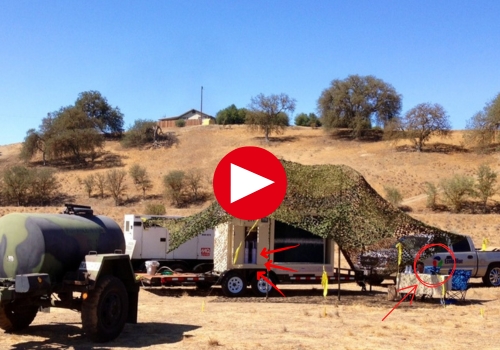 Basically, you get the plan, and you only need a few super-basic materials to put together a system that generates water out of thin air.
Basically, you get the plan, and you only need a few super-basic materials to put together a system that generates water out of thin air.
I’ve already built one of these systems at home myself, and I strongly recommend you do the same (you can find the schematics here).
You can keep these plans as your ace up your sleeve in times of crisis.
Summary: Plumbers will keep off-grid communities alive with safe water and sanitation.
Electrical Repairs
When the grid fails, most folks will sit in the dark. But those who can rewire homes, fix radios, salvage batteries, and get basic electrical systems running will be treated like magicians.
Even something as simple as repairing an LED lantern or restoring power to a small fan can mean a world of difference in a crisis. With the right knowledge, you can even help establish local microgrids powered by solar or hand-crank energy.
Bonus Skills:
- Rewinding motors or transformers
- Fixing inverters and charge controllers
- Setting up low-voltage lighting systems
How to Get Started: Take apart an old flashlight or radio and rebuild it. Watch tutorials on how to wire a basic 12V circuit or install a fuse block.
Summary: Electricians can restore light, communication, and power where others see failure.
Assembling Off-Grid Power Systems
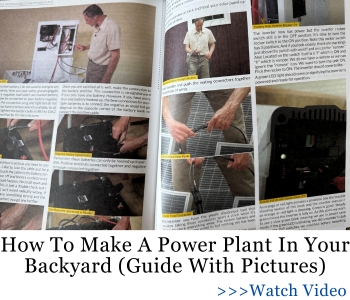 Anyone can buy a solar panel kit today—but only a few can wire up a battery bank, inverter, and charge controller without instructions.
Anyone can buy a solar panel kit today—but only a few can wire up a battery bank, inverter, and charge controller without instructions.
If you can build off-grid power setups using salvaged parts, you’ll be among the elite post-collapse class.
Think beyond basic lighting.
The person who can power a well pump, run a freezer, or support a medical clinic using solar or wind power won’t just be welcomed—they’ll be protected.
Bonus Skills:
- Calculating energy loads for homesteads
- Building DIY wind turbines or pedal-powered generators
- Installing and maintaining deep-cycle battery banks
How to Get Started: There’s now a step-by-step plan that shows you exactly how to build an off-grid power system yourself.
It’s designed to be cheap, modular, and easy—something you can assemble over a weekend using basic materials. The guide includes clear instructions, photos, and diagrams so that even a beginner can follow along without guesswork.
Summary: Off-grid power builders are the engineers of post-collapse infrastructure.
Maintaining and Cleaning Solar Panels
Even the best solar system will fail if the panels are dirty, corroded, or misaligned. If you understand how to clean and maintain panels, troubleshoot power loss, and replace damaged parts, you’ll never be out of work.
The ability to get the most efficiency out of each panel—especially when parts become scarce—will turn you into a solar whisperer. Expect people to trade food, ammo, or shelter for your services.
Bonus Skills:
- Building solar cookers or water heaters from scrap
- Rewiring panels to bypass dead cells
- Teaching others basic maintenance to extend system life
How to Get Started: Purchase a small solar panel and meter. Measure performance, then learn how dirt and angle affect output.
Summary: Solar techs keep power flowing and batteries charged when others are stuck in the dark.
Note: If you are looking for reliable solar panels that require minimal maintenance and last longer than average, we recommend the ones from Jackery. They are available at discounts of up to 45% right now at this link.
Welding and Metalwork
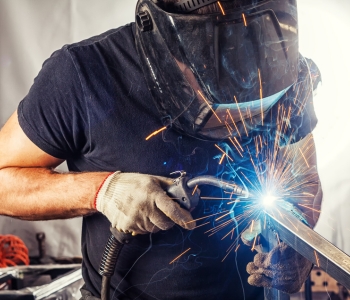 Post-collapse, there won’t be factories churning out replacement parts. That’s where welders come in. Whether it’s reinforcing gates, fabricating hinges, patching a cracked trailer frame, or making wood stoves from barrels—you’ll be worth your weight in steel.
Post-collapse, there won’t be factories churning out replacement parts. That’s where welders come in. Whether it’s reinforcing gates, fabricating hinges, patching a cracked trailer frame, or making wood stoves from barrels—you’ll be worth your weight in steel.
Welding is already a rare skill in most communities. After SHTF, it becomes one of the most valuable trades on the map.
Bonus Skills:
- Blacksmithing tools and hardware from junk
- Building rocket stoves and efficient heaters
- Repairing bicycles, carts, and animal-drawn equipment
How to Get Started: Find a local welding class or invest in a basic stick welder and practice on scrap metal. Safety gear is essential.
Summary: Metalworkers become the toolmakers and builders of post-collapse society.
Butchering and Meat Preservation
 Knowing how to humanely and efficiently butcher livestock or wild game—and then preserve it—is a skill set that will always be needed. In a grid-down world, refrigeration won’t always be available, so those who can smoke, salt, can, or cure meat will become indispensable.
Knowing how to humanely and efficiently butcher livestock or wild game—and then preserve it—is a skill set that will always be needed. In a grid-down world, refrigeration won’t always be available, so those who can smoke, salt, can, or cure meat will become indispensable.
You’ll also be able to trade preserved food products like jerky, sausage, and fat for other high-value goods or services.
Bonus Skills:
- Rendering tallow and lard for cooking or soap-making
- Creating shelf-stable foods like pemmican and bone broth
- Skinning and hide tanning for gear and trade
How to Get Started: Begin with small animals like chickens or rabbits. Learn knife skills and safe meat handling. Invest in a good butchering guidebook and a few quality blades. You can learn a wealth of useful information about food preservation and meal planning from A Navy SEAL’s Bug-In Guide, now available at a promotional price.
Summary: Butchers feed families, store calories, and preserve nutrition when it matters most.
Herbal Medicine and Natural Remedies
Once pharmacies are empty and hospitals overwhelmed, local medicine becomes everything. Herbalists who can treat wounds, ease pain, fight infection, and maintain health with plants will serve as the community’s doctor, pharmacist, and wellness center.
This knowledge is renewable and grows with the land around you—making it even more valuable.
Bonus Skills:
- Making tinctures, salves, and poultices
- Identifying and foraging regional medicinal plants
- Creating portable herbal first aid kits
How to Get Started: Grow or gather 5 beginner-friendly herbs (like calendula, yarrow, and comfrey – you can do it the easy way using this kit). Learn to make an infusion or salve. Keep a foraging journal.
Summary: Herbalists restore health and comfort when conventional medicine is out of reach. If you want to learn from someone who truly masters this field, I recommend the resources provided by Dr. Nicole Apelian.
Once considered to have no chance of beating MS by conventional medicine, she developed her own survival system and has managed to keep her illness under control. What’s more, she created 45 natural protocols for common conditions such as:
- Multiple Sclerosis
- Allergies
- Liver Health
- Leaky Gut, Gastritis, and IBS
- Asthma
- Type 2 Diabetes
- Thyroid
- Prostate
- Hair Loss
When the pressure of collapse builds, it won’t just be cuts and infections you need to manage—it’ll be stress, panic, and sleepless nights. The truth is, anxiety doesn’t just wear down your mind, it weakens your immune system and your decision-making when you need them most.
That’s why Nicole crafted her Anxiety & Stress Tincture, a blend of time-tested herbs designed to calm the body, focus the mind, and help you stay steady when chaos hits. Whether it’s the small stresses of everyday life or the crushing weight of crisis, this tincture can help you keep your edge.
👉 You can find it here: Anxiety & Stress Tincture
Get The Holistic Guide to Wellness: Herbal Protocols for Common Ailments and you’ll learn how to develop supportive treatments for problems people are bound to face post-SHTF.
Negotiation and Bartering Expertise
 In a post-collapse economy, bartering will replace cash. People who understand how to value goods, close deals, and maintain relationships will thrive.
In a post-collapse economy, bartering will replace cash. People who understand how to value goods, close deals, and maintain relationships will thrive.
Great negotiators don’t just score trades—they help build peaceful communities and thriving markets. A good barter broker can make alliances and diffuse tension when it matters most.
Bonus Skills:
- Running pop-up barter markets or traveling trade posts
- Creating fair-value systems and managing disputes
- Recognizing deception and psychological tactics
How to Get Started: Attend a flea market or barter fair and observe transactions. Practice negotiating prices at garage sales. Study basic negotiation techniques. A shortcut would be to look at what the Amish do.
After all, they are experts in bartering and in managing resources efficiently. Here you can find all their secrets, which you can draw inspiration from for the hard times ahead.
Summary: Barter pros are the dealmakers and diplomats of the new economy.
Sewing and Clothing Repair
Clothing wears out faster than you’d think—and in a world without Walmart, someone who can mend or create clothing from scratch will always have work. Tailors who can sew, patch, and adapt gear to the seasons will provide comfort, protection, and dignity.
From baby clothes to winter coats to leather satchels, a skilled sewer helps entire families weather hard times.
Bonus Skills:
- Quilting, knitting, and hand-stitching heavy-duty items
- Repurposing old materials into new gear
- Making custom-fit gear for survival needs
How to Start: Learn how to sew a button, patch denim, and use a treadle or hand-crank sewing machine. Stockpile needles, thread, and fabric scraps.
Summary: Tailors clothe and protect communities with skill, not factories.
Homestead Systems and Permaculture Design
The ability to build a self-sustaining system from soil, sun, and sweat is the pinnacle of preparedness. Permaculture experts understand how to turn backyards into food forests, how to use animal waste as fuel, and how to recycle water for crops.
They don’t just survive—they create abundance.
Bonus Skills:
- Designing closed-loop waste, food, and energy systems
- Building raised beds, swales, and keyhole gardens
- Managing small livestock for eggs, meat, and compost
How to Start: Grow something—anything. Study permaculture basics and start a compost pile. Walk your land and observe water flow and sun patterns. Learn from homesteaders with experience.
Ron and Johanna Melchiore have been doing this for over 40 years, and they decided to share their experience in The Self-Sufficient Backyard—a book well worth reading and keeping close at hand for crisis scenarios.
Summary: Homestead designers build systems where survival becomes sustainable.
Final Thoughts
In a true survival scenario, it won’t matter what your job title used to be. The people who will eat well, stay warm, and live comfortably will be the ones who can fix what’s broken, keep systems running, and trade their know-how for everything else.
You won’t just survive—you’ll become the foundation of a rebuilt world.
And the best part? You can start learning today. Online tutorials, local classes, and a few hours a week of hands-on practice will put you far ahead of the pack.
Start practicing. Start building. Because when the time comes, those who can do will rise to the top.
To put into practice all the skills that could bring you peace of mind post-SHTF, you’ll also need some tools and accessories. Keep them safe, alongside your stock of food, water, and medicine, in The Easy Cellar. Easy to build, this underground bunker offers military-grade EMP protection and can shelter you in the event of a nuclear attack!
You may also like:
What’s Coming Is A Global Reset (Video)
7 Life Skills I Wish I Knew Sooner

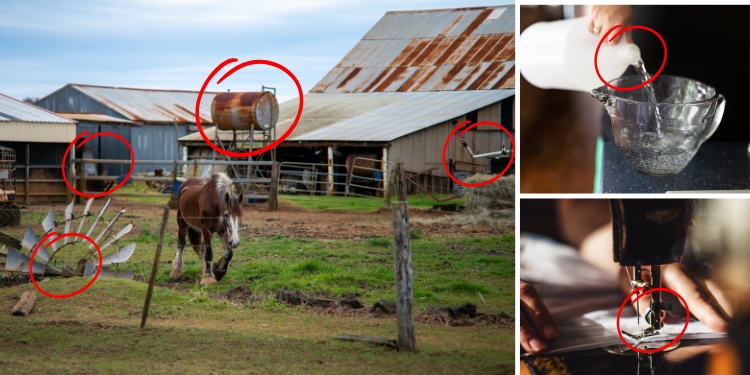







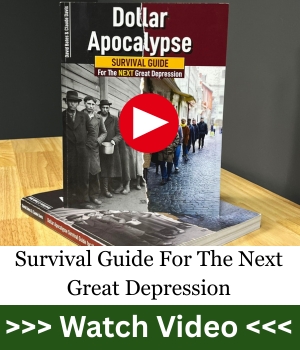



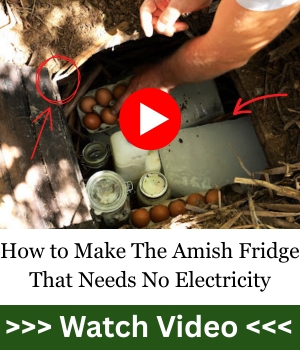








Pretty good list. Can I combine cleaning a solar panel with originally installing it? That makes room for one more in the list of ten. I would then include woodworking / carpentry as a good skill set. Its very likely there are going to be doors and windows that need repair or replaced to keep the rain and cold out. Maybe a whole new shelter or simply repairing a bed, table, or chair. I am thinking back to Viet Nam and life on a small firebase we returned to at night. As combat engineers we built a bunker for ourselves that was on par with what the officers had because we could. We had the tools and the skills to do it so we did. I would suggest the squad level carpenters tool box as a good set for anyone. Hammers, saws, brace & bits, chisels, a square, we could turn used 105mm ammo crates into a nice finished bunker instead of just sandbag walls. Oh and our roof didn’t leak! I would agree that getting water, hunting, butchering, and things like that are more important for actual survival but at some point having things a little nicer and more comfortable count too.
That is quite ingenious. Sounds like you guys did a great job there.
Hey dome,
What is a list of squad level tools please?
This list seems about like I remember ours from the 60s.
• 3 Hammer, Claw, 20 oz., Handled
• 2 Handle, File & Tool, Medium
• 1 Square Tri 8″ with wood handle
• 2 Hatchet, Half, 3 1/2″ cut handled
• 1 Bar, Wrecking, 30 Inch, Claw and Pinch Point
• 2 Saw, crosscut 26″ 8 pt
• 1 Saw, Rip, Hand, 26 Inch, 5 pt
• 1 Frame Hacksaw adjustable 8-12″
• 1 Wrench, Monkey, 12 Inch, 2 1/2 Inch Screw Opening
• 1 Chisel woodworkers, socket, wooden handle, 1″
• 1 Level and Plumb, Carpenters, 24″ wood
• 1 Plane, Carpenter’s Wood
• 1 Screwdriver, Common, Plastic Handle, 3″
• 1 Screwdriver, Common, Plastic Handle, 4″
• 1 Screwdriver, Common, Plastic Handle, 6″
• 2 File, Saw, Crosscut, 8 Inch
• 2 File Mill, Second Cut 8″
• 1 Auger, Spring shank,(brace)
• 1 Auger bit set, ¼ to 1 inch
• 1 auger bit, expanding
• 1 Pliers, Combination, Slip joint 8″
• 1 Doz Crayon, Lumber, Red
• 1 Line, Chalk, 100 Feet, Ball
• 1 Pliers, Linesman, Side cutting 8″
• 1 Rule, Steel, Inside-outside, Push Pull
• 2 Chalk, Carpenter, 1 Oz., Half Dozen
• 1 Level, Line, 3″
• 1 Square, Carpenter’s Steel 16″ x 24″
Noticed that the guy in the picture doing the welding wasn’t wearing long sleeves. Really good way to get a bad sunburn. Made that mistake once and I did. After that I always wore long sleeves when welding.
Good point and you will notice he is using MIG instead of stick as his method of welding. For a beginner and material under 1/4 inch I would suggest MIG,I would say it’s easier to get something that at least looks like a weld bead.
Could be a Flux Core welder, by not using gas.
That is a very good notice. You are absolutely right. Let’s all take this as a learning opportunity.
Looks like MIG (Metal Inert Gas. Solid steel wire with a shielding gas). If he was running dual shield, FCAW / Flux Core Arc Welding ( shielding gas and flux cored wire) or, innershield (no gas, but flux only), it would be smokier by a lot. There are various shielding gases. Co2, Argon, and various combinations of gas mixes. For an asture or shtf setting, I would choose stick or innershield as no cover gases are needed however one would need an oxy acetylene torch so he could cut and weld. (retired welder/fabricator).
Excellant Thoughts
notice computer, No internet, social garbage from the ed dept s
All Life skills of using your brains, hands, thought process for something other than the nutty proffessors views of life
yes you will have to Think , Reason, Make decisions based on FACTs ,
All the stuff not really taught in liars networks of today
MATH , READING , WRITING , TALKing to people directly
person to person
As The bible states : So as a man thinks so they are and who you associate with is who you become like .
Deception and lies will float like everyday coffee
Read The Bible , Seek out Truth , Look into the real meanings of Gods Word the Bible
like a person looking for a life raft in the mist of the storm
Good point and you will notice he is using MIG instead of stick as his method of welding. For a beginner and material under 1/4 inch I would suggest MIG,I would say it’s easier to get something that at least looks like a weld bead.
One thing everybody don’t think about is a SHOE COBBLER.
Shoes do not last very long.
You need someone skilled in repairing and making shoes.
After a year or so, people will need new shoes.
Shoe Cobbler also need to know how to process leather.
Note: flip flops may be fun for women but they are impractical in the winter time.
I would add “Animal Husbandry-Riding-Driving (buggy -wagon – plow)”, “Carpenter-Structural Engineer”, and “Brewer-Distiller”!
Howdy from high in the desert swamp,
When I was about 10 I had a button come off while at my grandparents house. My grandma sat me down and said pay attention. I’m going to show you how to put a button back on and it will not come back off. She sewed it in place. Then she said this is what you do. From the backside, she put the needle through and not through the button but along the side and pulled out the thread, Made four or five wraps around the thread coming through the shirt to the button, stuck it back through the material on the inside and tied the knot. She pulled the button up kind of tight and showed how strong it was. She said you don’t have to worry about that button again. When I went out to the barn, my grandpa asked me where I’ve been. I told him grandma showed me how to sew on a button. He looked at me over his glasses and said if I ever fall off one of these cliffs, I hope I get hung up by one of grandma‘s buttons because the whole shirt might rip out, but that button is gonna stay.
Over the years I’ve sewn other people‘s buttons on along with no telling how many of my own. People ask me how did you learn to do that? I said pull up a chair over here. They will, and I say just like my grandma. Pay attention. They always look at me kind of funny and I start to laugh and I coach them through sewing it on. I did the same thing where a buckle came off of the leather boot and that was pretty much useless so I sewed a button on that spot where the buckle was. Found a piece of leather that matched mostly and sewed it onto the strap then I cut a slot and carved out some with a knife and was able to put the strap over the button. The lady was watching me and she said can you do that with the other buckle and my other boot? Took me about an hour, but I did it. You just saved me about $200 on a new pair of boots and the way you sewed those buttons on. I don’t think that’s gonna be a problem anytime soon. It got her out of the woods and her husband was very happy about that. Being able to sew and make repairs or even make things like my percolator cover to keep it warm while I’m drinking a cup is going to be a game changer for you and for someone else.
Remember the Alamo
Remember 9/11
Remember North Carolina
Remember to have your soul prepared
I use a tea cozy when I make a pot of tea. I enjoy a cup after the tea is steeped, and pour the rest in a thermos to keep hot the rest of the day. If there’s water left in the kettle, I add that to the teapot for a second brewing. Put the cozy in and let it sit.
A friend watched my tea ritual up to the first brew step. We got busy doing other things, and about a half hour later, I suggested we have some tea. He said it would be too cool by that point to enjoy it hot, and was shocked as I pulled off the cozy, poured a cup for me, and the steam swirled above the cup. He has to try a sip for himself and marvelled at how hot it still was.
Admittedly, it was inside in a place that had central heating, so the ambient temperature wasn’t freezing.
I’d add basket making skills to the list. At some point all the totes and boxes will wear out or, if plastic might crack. Knowing how to make containers from what the landscape offers will be handy.
Squirrel, dan, Ozark you guys are always wonderful.
I can work leather a lot better than most numb skulls. I can so better than most numb skulls. My sewing machine is 100 year old singer that’s been electrified but that can be swapped on to a treadle pedestal that I own. It’ll take a bit to get used to but I can keep going. I also have a hand all sower for leather and have done a lot of work on boots and Saddles through the years. I’m not your guy if you want it fancy tooled but, I’ll get her so you can wear her for another couple of years. I’d like to know a lot more about tanning because I think that’s going to be an essential skill shoes are going to wear out way past the repair stage and we’re going to need to know how to produce them from scratch. Personally I think everybody’s survival list ought to include several sizes of larger Footwear for the little ones and at least four multi-season pears for the adults. Pretty much on all these postings every time we see something that someone else thought of, the reaction is that causes us to think of four or five more things that need to be thought about.
Howdy again,
No snipe at the authors at all but, I get as much from some of the comments as the article which to me is a good thing. It makes me realize I am not alone in this thought process.
“The prudent see danger and take refuge, but the foolish keep going and suffer for it.” Proverbs 27:12
Agreed Chap, more people = more experiences = more solutions.
I think I am a victim of auto correct or something, sew & awl
I have experience with creating a variety of different metals from pour…forge…..heat treat…..testing for quality….then machining into a finished product .Submarine and aircraft carrier….Nuclear power etc….shipping…..truck….air….rail….boat….But I am getting old….
And the crew is scattered all over the place…sad…
I don’t know the detailed list, but I remember it said that a community needs a minimum variety of 237 skills divided among the community to cover all the basic needs the community requires to function and live.
Government, religion, banking, commerce, accounting, attorneys, courts, salesman, CEOs, CFOs, CIOs, clerks, cops… are not on the list, but Geneva Bibles are first and top, as well as someone with knowledge of it to edify and admonish the community to stay on the right course with our Maker, who is our King, Lawgiver, Judge, Savior, Refuge, Healer, Teacher, Protector, and Avenger.
Our rural valley has a good group of folks, nurses, dental, construction, mechanics, small sawmill and butcher. Most of us have gardens, fruit and nut trees, wild grape and various livestock. I’m a retired welder/fabricator and also have a solid background in construction and masonry, my wife is one of the nurses with a BSN and a masters in public health. Most of us butcher/process our own meat and game with our local butcher handling the beef. I chose meat goats for this very reason, if things go downhill, it is easier to process smaller animals with less spoilage, than it is a cow/steer. We also have a good number of veterans and retired law enforcement.
I have alot of experience with using this shoe repair product called “..Shoe Goo …”i was doing alot of weeding in my yard and for some reason my tennis shoes rubber sole would start pulling apart….at the tip of the shoe first…. then gradually getting worse with time…just apply some shoe goo between shoe and sole…then i used a small C-clamp to hold everything in place for 24 hours…then if the shoe is black i would just spray some flat black spray paint on shoe …now it will last for a long time….last longer than a professional shoe shoe repair person……Two thumbs up on shoe goo from Fred Meyers…great tool to have in your prepper tool belt…
Now i pretty much let my weeds grow just to see what likes growing in my yard….then i ID the plants.to see if they are edible…gather there seeds and watch them closely take notes …when they appear….what they look like when young….and how long they live….do they grow well in pots ? Can i dry them for tea’s….use them for medical reasons ?….Learn the history of the plant….and nutritional values…..
Shoo Goo,
it only works on shoes, synthetic, leather , rubber, canvas like a TENT, nylon like a TENT, glue cloth over a canoe hole and cover the fabric with it for water proofing. Shoo goo and JB weld can fix half the world.